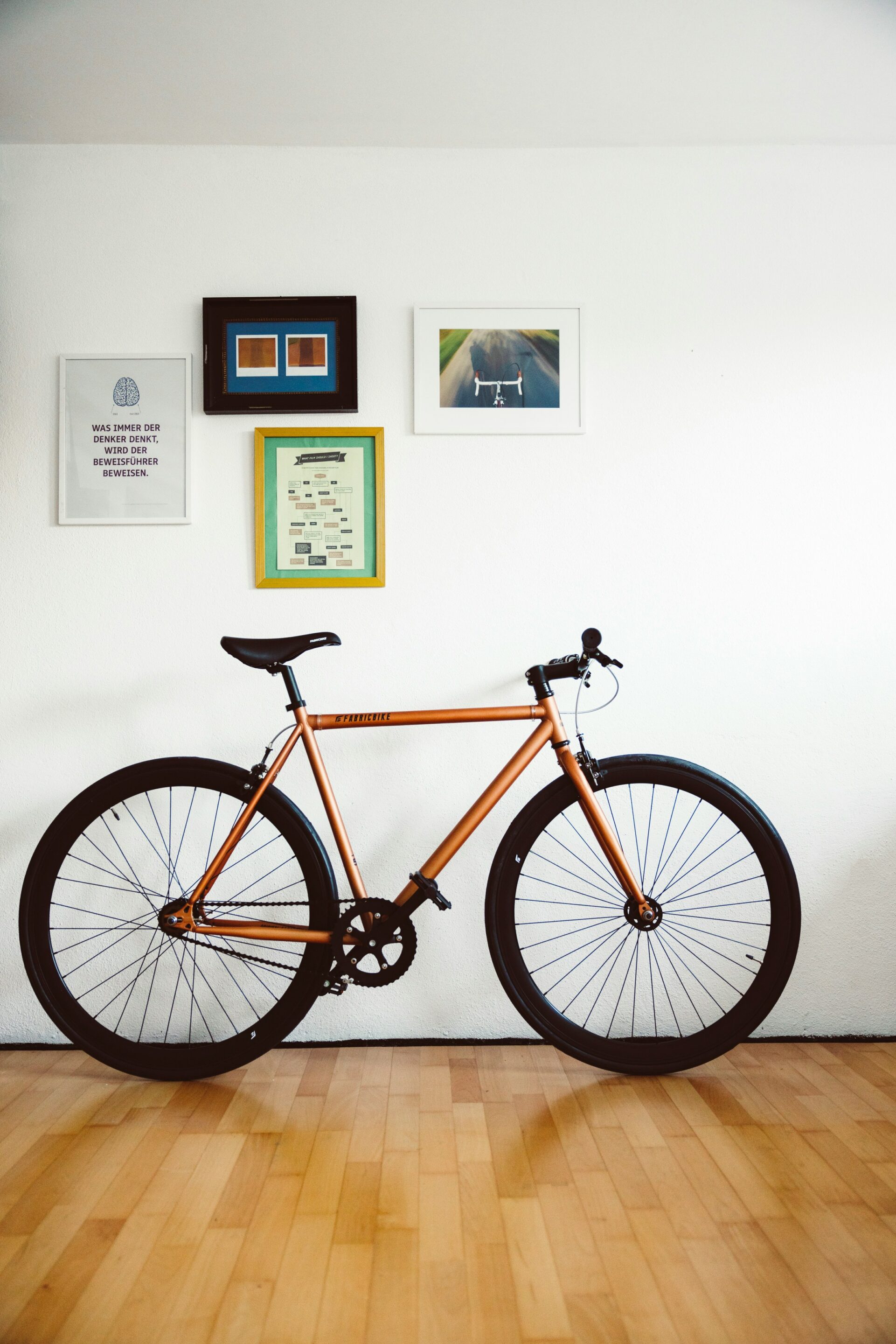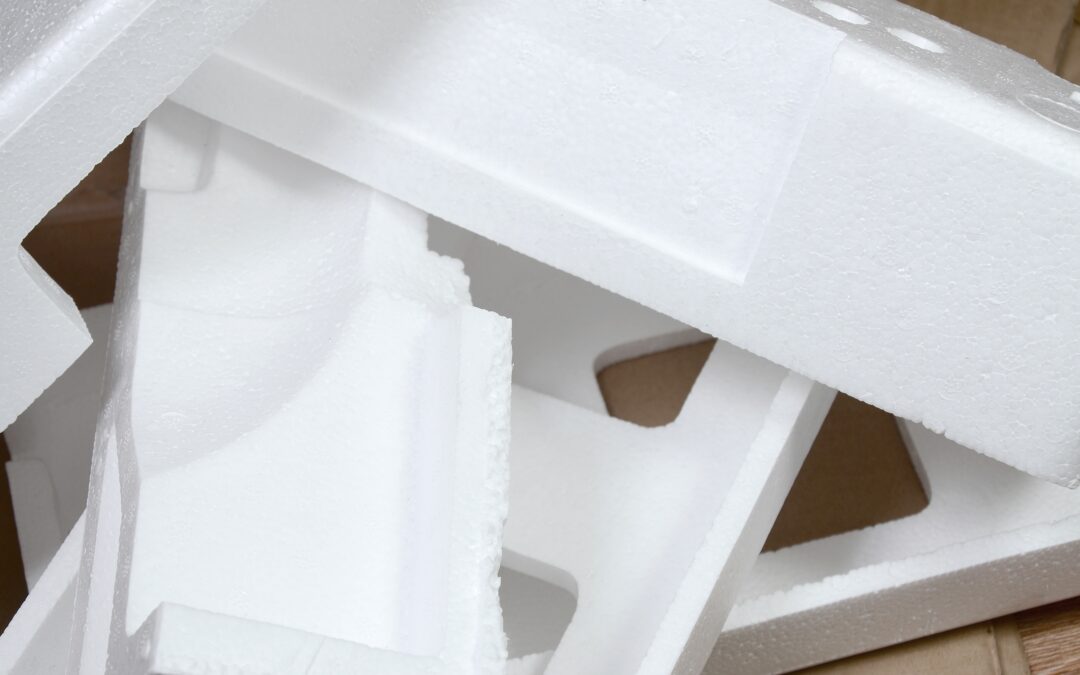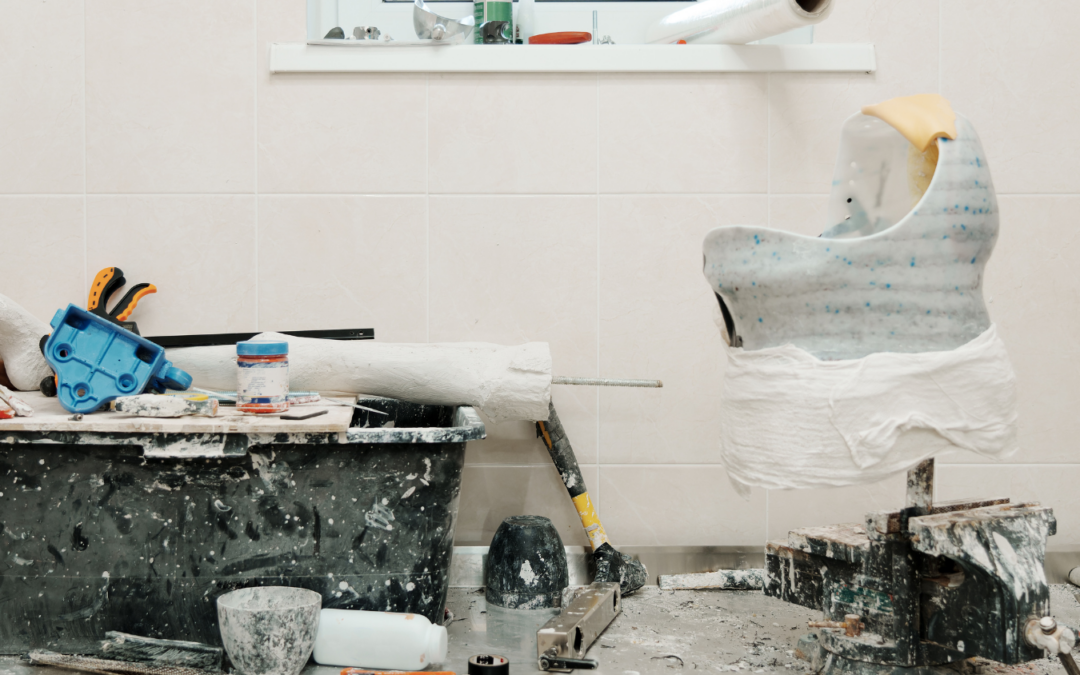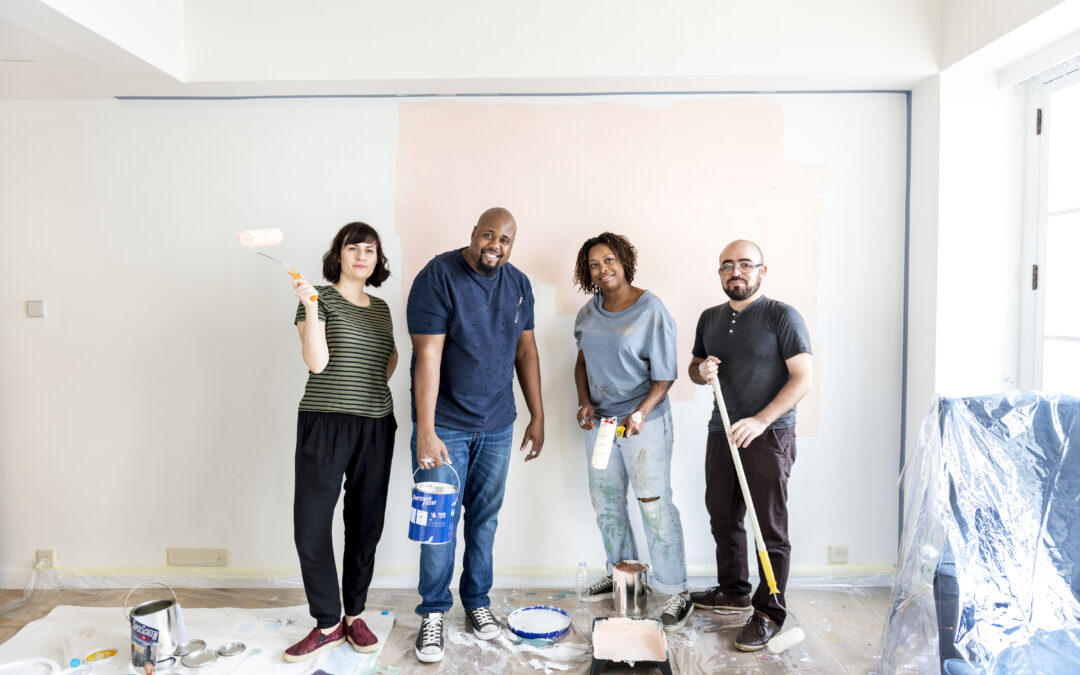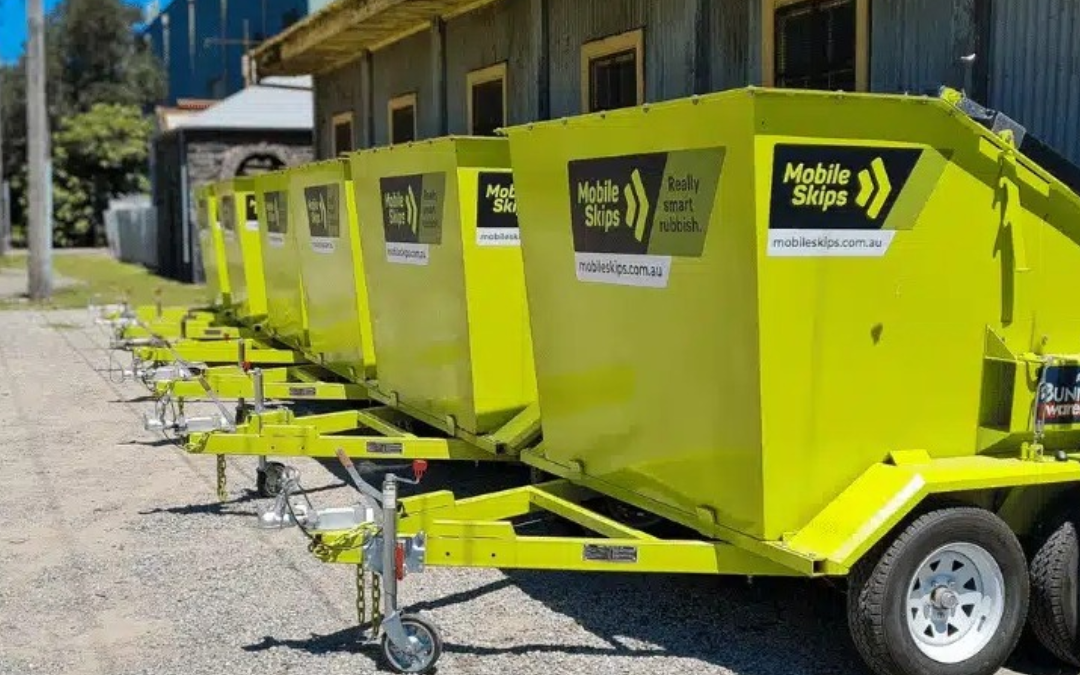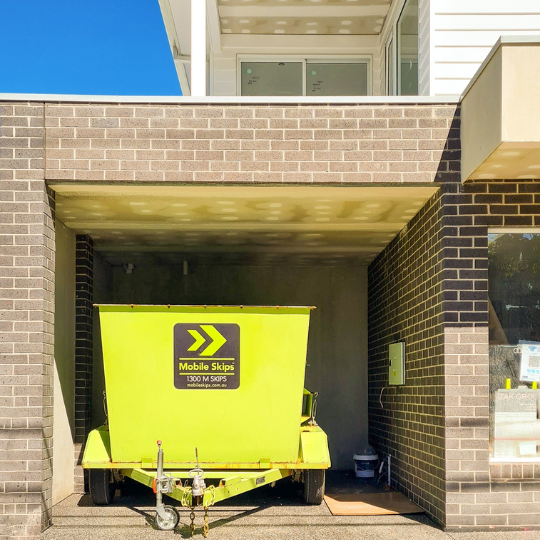Benefits of Decluttering
Decluttering your home isn’t just about making it look neat; it can seriously boost your mood and make your daily life smoother. Let’s see how getting rid of the mess can help you feel better and cut down on stress.
How Clutter Messes with Your Mind
You might not notice it, but all that stuff lying around can stress you out. It’s like a constant reminder of things you haven’t done. It can make you feel guilty about things you don’t use and confused about what you actually need. This chaotic environment can mess with your productivity and stop you from feeling accomplished. Mather Hospital points out that clutter isn’t just about the mess you see; it’s also about the mess in your head.
Chill Out by Clearing Out
Tidying up can make you feel calmer, happier, and more in control. According to WebMD, a clean space helps you relax and lowers stress. Women who describe their homes as tidy and complete have lower levels of the stress hormone cortisol compared to those who see their homes as messy or unfinished. This shows a clear link between a clean home and a less stressed mind.
By getting into decluttering and upcycling, you’re not just aiming for a cleaner home but also a more peaceful and stress-free life. Whether you’re decluttering before moving, going for a minimalist home, or just looking for beginner tips, the path to a clutter-free space is a step towards a calmer mind and a happier you.
Health and Productivity
Decluttering isn’t just about making your space look nice; it’s about boosting your well-being and productivity. Let’s see how tidying up can bring real benefits to your mental and physical health.
Mental Health Benefits
A messy home can mess with your mind. According to WebMD, cleaning up your space can make you feel calmer, happier, and more in control. A neat environment can lead to a relaxed mind, helping to lower stress.
A study mentioned by WebMD found that women who described their homes positively had lower levels of the stress hormone cortisol compared to those who saw their homes as cluttered or unfinished. This shows a clear link between a tidy space and lower stress levels.
By using decluttering and organizing tips, you might also see better focus, higher self-esteem, and even improved relationships. It’s about creating a peaceful place that lets you recharge and reflect, bringing calm and order to different parts of your life.
Physical Health Improvements
Decluttering isn’t just good for your mind; it can also boost your physical health. A tidy home reduces the risk of accidents, makes cleaning easier, and can even improve air quality by cutting down on dust and allergens. Getting rid of unnecessary stuff creates a cleaner space that supports a healthier lifestyle.
Plus, decluttering itself can be a workout. Sorting, lifting, and organizing can get you moving and help burn calories, especially if you have a desk job. The physical activity involved in decluttering can add to your overall fitness.
By embracing decluttering and minimalism, you’re not just cleaning up your home; you’re clearing your mind and boosting your physical health. A clean and orderly space can be the foundation for a healthier, more productive life. For a step-by-step guide to declutter your home, check out our decluttering checklist for home to get started on this life-changing journey.
Decluttering Challenges
Getting your home clutter-free can feel like a breath of fresh air, but it’s not always a walk in the park. Two big bumps in the road you might hit are dealing with hoarding disorder and helping older adults declutter.
Hoarding Disorder
Hoarding disorder is a real mental health condition affecting about 2.5% of folks. If you or someone you know is struggling with this, it’s more than just being a packrat. People with hoarding disorder feel intense anxiety about letting go of stuff, and their brains go into overdrive when making decisions about their belongings. This often leads to a mountain of clutter that’s tough to manage (WebMD).
Treating hoarding disorder usually involves a mix of meds, therapy, and support groups. If you think hoarding is throwing a wrench in your decluttering plans, it’s time to call in the pros. There are decluttering and organizing services that specialize in helping folks with hoarding tendencies, giving them the tools to take back their space and peace of mind.
Helping Older Adults
Decluttering gets trickier as you get older. About one-third of people over 70 haven’t tossed anything in the past year. This means older adults often have a lot more stuff to sort through, which can be overwhelming, especially when physical limitations come into play (WebMD).
If you’re an older adult looking to declutter, or you’re helping an older family member, patience and empathy are key. Offering a helping hand or just some moral support can make a huge difference. There are also professional services that can step in to make the process easier and more manageable.
Remember, decluttering is more than just tidying up; it’s a way to boost your wellbeing and create a more peaceful living space. Whether you’re dealing with hoarding disorder or helping an older adult, the goal is to achieve a clutter-free zone that makes life less stressful. For more tips and tricks on decluttering, check out our home decluttering tips and think about sustainable practices like decluttering and upcycling to turn your junk into gems.
Sustainable Decluttering
Decluttering your home isn’t just about making more room; it’s a chance to do some good for the planet. By choosing eco-friendly methods, you can cut down on waste and help keep our Earth healthy.
Why It Matters
Clutter isn’t just an eyesore; it can harm the environment. Every item tossed into a landfill adds to the waste problem. Sustainable decluttering, as highlighted by LinkedIn, is more than just tidying up; it’s about making a lasting difference. Each item you recycle, donate, or repurpose helps keep our planet cleaner.
Think about these benefits:
- Less junk in landfills
- Saving natural resources by reusing stuff
- Cutting down pollution from making new things
Green Decluttering Tips
Sustainable decluttering means finding new uses for things you don’t need anymore, instead of just throwing them away. This way, you can clear out your space without hurting the environment (ClimateSort). Here are some easy ways to start:
- Recycle: Go through your stuff and sort out the recyclables. Make sure they’re clean and ready to go.
- Donate: Give items in good shape to local charities or thrift stores. You can also join community groups that swap and donate items.
- Upcycle: Turn old things into new treasures. For example, make a bookshelf from an old ladder or use jars as planters.
- Sell: Have a garage sale or sell your items online. This not only extends the life of your stuff but also puts some extra cash in your pocket.
- Digital Decluttering: Clean up your digital files and recycle old electronics responsibly.
By using these green methods, you can make a big difference. Want more eco-friendly decluttering tips? Check out our decluttering and recycling guide for more ideas.
Remember, sustainable decluttering isn’t a one-time thing; it’s a way of life. Whether you’re decluttering before moving or just want a fresh start, managing your stuff sustainably can lead to a cleaner home and a healthier planet. For more practical advice, explore our decluttering checklist for home.
Upcycling for Sustainability
Jumping into upcycling can be a game-changer for your sustainability efforts, especially when you’re tackling decluttering and upcycling at home. Let’s break down what upcycling is all about and why it’s worth your time.
What is Upcycling?
Upcycling is all about taking old, used, or unwanted stuff and turning it into something better than it was before. The term got a boost from German author Gunter Pauli in 1997 and became even more popular thanks to William McDonough and Michael Braungart’s books “Cradle to Cradle” (2002) and “The Upcycle” (2013). The main idea? Instead of just recycling, which can lower the quality of materials, upcycling adds value and gives new life to things.
Why Upcycle?
Upcycling isn’t just a feel-good activity; it packs a punch with benefits for the environment, your wallet, and your creativity:
-
Save the Planet: Upcycling keeps useful materials out of the trash. This means less need for new raw materials, lower energy use, and fewer pollutants. Plus, it helps cut down on greenhouse gases. All these actions help keep our planet’s resources in check (Michigan State University Extension).
-
Less Waste: By giving new life to items that might end up in landfills, upcycling slashes waste. It reduces the need for new production, which means fewer pollutants and more conserved resources (FutureLearn).
-
Save Money: Upcycling can be a cheaper alternative to buying new stuff. It also opens doors for entrepreneurs to create and sell upcycled products.
-
Get Creative: Upcycling is a fantastic way to express your creativity. Turning something old into something new and cool can be super satisfying and fun.
-
Build Community: Upcycling can bring people together and inspire others to live more sustainably. It also raises awareness about the importance of conserving resources for future generations.
For practical tips on how to start upcycling, check out our guides on decluttering your home and decluttering and organizing. Whether you’re decluttering before moving or just want to freshen up your space, upcycling can add unique value to your environment while promoting sustainability.
Upcycling Initiatives
Upcycling is flipping the script on waste, turning what we usually toss into goldmines for businesses, communities, and everyday folks. It’s not just a fad; it’s a game-changer for a greener, more cost-effective future.
Business Opportunities
Upcycling is a goldmine for entrepreneurs and established companies. Creative minds are turning “junk” into profitable gems, making everything from chic furniture to trendy fashion accessories out of stuff that would otherwise rot in a landfill. This isn’t just about making money; it’s about showing customers that you care about the planet.
According to Michigan State University Extension, businesses that jump on the upcycling bandwagon are seeing more than just dollar signs. They’re helping create a fairer, greener world for future generations. Plus, since upcycling uses fewer natural resources, these businesses are also cutting down on their environmental footprint.
Want to make your business more eco-friendly? Check out our guides on decluttering and recycling and decluttering and donating to kickstart your upcycling journey.
Community and Consumer Involvement
Upcycling isn’t just for businesses; it’s a team effort that thrives on community spirit. Local workshops, upcycling fairs, and school programs are getting people excited about turning old stuff into new treasures. These events are great for sharing ideas, learning new skills, and realizing the value of what we already have.
Communities are banding together to tackle waste, creating a ripple effect that benefits everyone. By getting into upcycling, consumers help cut down on waste and reduce the need for new products made from raw materials. As FutureLearn points out, this not only keeps stuff out of landfills but also saves global resources and cuts down on pollution.
Want to get involved in upcycling in your community? Check out our list of decluttering and organizing services. You’ll see how cleaning up your home can be the first step toward bigger sustainability efforts.
By embracing upcycling, you’re not just giving old items a new lease on life; you’re also helping build a greener future. Whether you’re a business owner, community leader, or just someone looking to make a difference, there are tons of ways to get involved in upcycling. Start today and turn your clutter into something amazing. For inspiration, check out our upcycling ideas for home and see how you can help create a cleaner, healthier planet right from your living room.
Upcycling Projects
Creative Transformations
Ever thought about giving a second life to stuff you were ready to toss? Upcycling is your playground for creativity, turning what you might call junk into cool, functional treasures. With a bit of imagination, things like glass bottles, fabric scraps, and old furniture can find a new purpose. Picture this: adding fairy lights to old glass bottles can turn them into magical vases or table lights, adding a cozy vibe to your home (Paguro Upcycle).
Check out some materials just waiting for a makeover:
| Material | Upcycled Into |
|---|---|
| Old Jeans | Shorts, Cushion Covers |
| Ladder | Storage Shelves |
| Drawers | Side Tables |
| Bed Frame | Garden Bench |
| Pallets | Outdoor Furniture |
These projects aren’t just fun; they also help you live more sustainably. For more ideas, dive into our upcycling ideas for your home.
Artisanal Support and Cost Reduction
Upcycling isn’t just for DIY fans; it’s a movement that supports artisans and saves money. By repurposing materials like wood, metal, and fabric, you’re not only keeping stuff out of landfills but also saving on the cost of new items. For example, turning old furniture drawers into chic side tables is a great project for those who love craftsmanship and the stories behind reclaimed pieces (Paguro Upcycle).
Plus, upcycling helps build a circular economy, where products and materials get reused and keep circulating. This reduces waste and supports local artisans who turn reclaimed materials into beautiful, functional items.
Upcycling is a win-win for your wallet and your creativity. It’s a step towards a more thoughtful and sustainable lifestyle, where every item in your home has a unique story of transformation. Ready to start? Check out these home decluttering tips to clear the way for your next project.
Practical Tips
Getting your home in order can be both freeing and good for the planet. Here, we share eco-friendly decluttering tips and upcycling ideas to turn your home into a clutter-free, creative haven.
Eco-Friendly Decluttering Tips
Decluttering isn’t just about tossing stuff out; it’s about doing it in a way that doesn’t harm the environment. Here’s how to declutter responsibly:
- Donate or Sell: Before you throw anything away, think about whether someone else might need it. Selling items online or donating to charity shops can give your old stuff a new life.
- Repair and Reuse: Fix up items that need a little love. Repairing loose hems, broken handles, or worn-out items can keep them out of the landfill and save you money (ClimateSort).
- Recycle Right: If you can’t repair or donate something, recycling is the next best thing. Check your local recycling guidelines to make sure you’re disposing of items correctly.
- Digital Decluttering: Don’t forget your digital space. Organizing files and unsubscribing from unnecessary emails can reduce stress and boost productivity.
For more tips, check out our decluttering checklist for home or explore our decluttering and organizing services for professional help.
Upcycling Ideas for Home
Upcycling means turning waste materials or unwanted items into something new and better. Here are some creative upcycling ideas to get you started:
- Garden Delights: Use old buckets, wheelbarrows, or shovels as quirky planters or garden decorations. This adds character to your outdoor space and cuts down on waste (ClimateSort).
- Homemade Beauty: Make your own bath and beauty products with natural ingredients. Reuse bottles or jars for these homemade goodies to reduce clutter and waste.
- Furniture Flips: Turn an old ladder into a chic bookshelf or an unused door into a stylish headboard. With a bit of creativity, old furniture can become the star of a room.
- Fashion Forward: Fashion lovers can turn old clothes into new items, like making a scarf into a vibrant cushion cover or old jeans into a trendy tote bag.
For more ideas, check out our articles on decluttering and creating a minimalist wardrobe, decluttering and creating a minimalist kitchen, and decluttering and creating a minimalist bedroom.
Remember, decluttering and upcycling aren’t just about cleaning up; they’re about embracing a sustainable lifestyle that values creativity and resourcefulness. By following these tips, you’ll be on your way to a tidier, more eco-friendly home.

